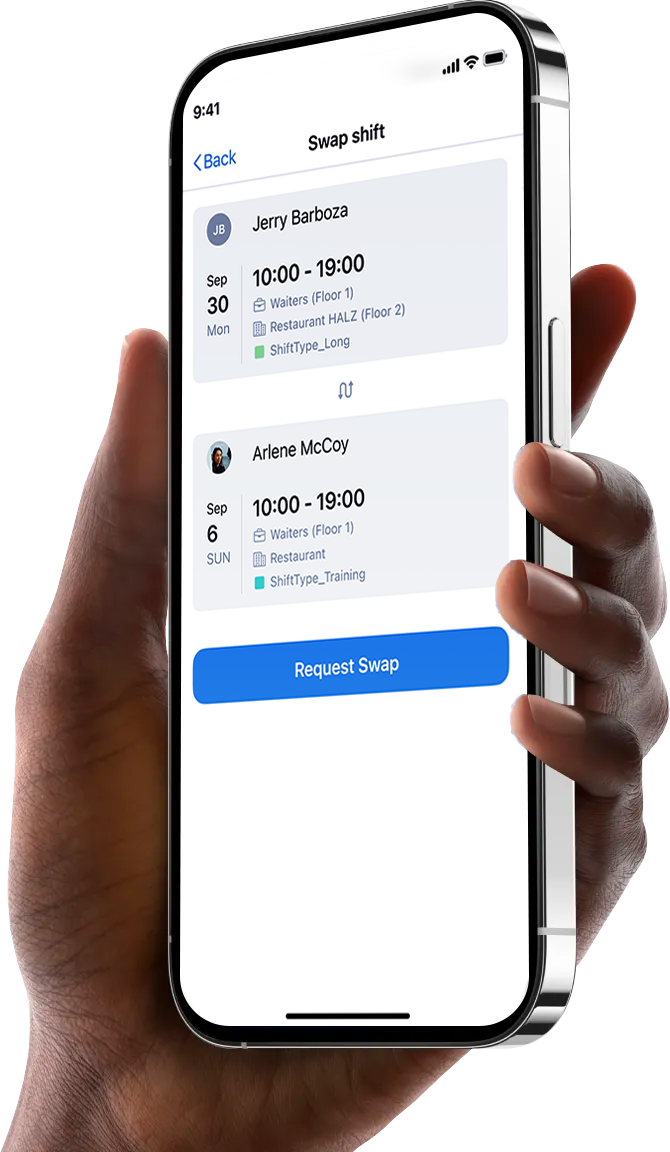
Article
7 min read
How to improve cost control for your hospitality business
Sofia Ellmén
Nov 18, 2024
Chapters

UK hospitality businesses have had it hard in recent years – first Brexit, then the pandemic and now a cost-of-living crisis. With little cash to spare, Brits are tightening their belts, and restaurant visits are getting the chop.
To uncover how these changes have impacted the industry, we had a panel of experts from Tenzo, Tevalis and Apicbase discuss the effects. Each panelist shared valuable, first-hand advice on how restaurateurs can make sustainable changes to their business and enter the new year with better cost control.
The Xero Small Business Insights from 2023, shows that sales only rose 2.2% in the year to the September quarter. This is much slower than the double-digit growth experienced at the start of the year. It also shows that wages in the hospitality industry are rising faster than the UK average, increasing up to 4.3% compared to a 3.5% overall wage increase. Despite hospitality offering better wages than ever before, it’s still struggling to find talent.
Getting your back of house in order
Another problem is the rising cost of food. According to Carl Jacobs, Apicbase CEO, restaurateurs are trying to maintain their margins by ensuring their food costs follow their sales projections. The challenge is to find the right margin. And if you have to raise prices, how do you do it without losing customers?
Madeleine Pellico, from Tenzo, suggests raising the price of some menu items could solve this problem.
A Tenzo brewery client raised the price of its beers by 10-12%, but kept the price of food the same. Doing this improved its sales margins, without losing customers to competitors. That said, even though guests are still coming through the door, there’s not as many as before.
“One thing we are finding very interesting is how these cost changes are affecting not only sales, but the number of transactions. So we might see a growth in sales, but the number of transactions have actually levelled or are declining.” - Madeleine Pellico, CS Lead, Tenzo
So, instead of just looking at the revenue, restaurateurs should scrutinise how many returning customers they have and the number of transactions they get through now compared to before the increase in menu prices.
Guests are coming, but where are the staff?
Although UK hospitality industry pay has improved, a lot of restaurateurs are still struggling to recruit talent, and with staff not showing up for a shift. Brett Smith, Planday’s VP of customer support (and a former hospitality manager) stresses how important it is to look after your team.
“Something that we can actually control and do as restaurateurs, is really focus on the employee experience. And you can use technology for that” - Brett Smith, Planday
Tech might feel like *another* outgoing, but the right investment can make a big difference for your employees. Offering them access to their schedules earlier and enabling them to request holiday or swap shifts on the go might seem small to you, but these touches can have a huge impact on your team’s lives. And caring for your employees’ wellbeing benefits your business. Happy employees stay with a business longer, serve guests with a smile and leave them wanting to come back. Younger employees also expect a certain level of digitalisation from employers, so to get them into the industry, employers need to stay ahead of the curve.
Kevin Dixon, the Director of Partnerships at Tevalis highlights the importance of understanding restaurant guests’ expectations. Because people have an almost limitless amount of restaurants to choose from. So delighting with an extraordinary dining experience and outstanding service becomes crucial for attracting guests.
4 things to focus on to improve profitability
 Go from gut-feeling to data-driven decision making
Go from gut-feeling to data-driven decision making
Implementing technology to help with the managing of back and front-of-house operations is a step in the right direction, but without understanding the data, you are unlikely to succeed. Carl mentions that he sees a lot of businesses drive their businesses from a gut-feeling, but to get ahead of competition the aim should be to become a data-driven company. He suggests that restaurateurs start by implementing technology, then use the data to figure out where the business is losing money and make improvements to operations accordingly.
 Empower your staff on the ground
Empower your staff on the ground
Many Tenzo customers are empowering their general managers to make decisions on the ground. By giving GM’s access to data about the business operations, they can make informed data-driven decisions to improve profitability. Madeleine is seeing more and more hospitality customers focusing on maximising their sale-to-labour costs ratio and on improving the average transaction value of guests. The right data highlights the right items to have on the menu.
“A customer was bringing their chefs in an hour earlier than they needed to, to prepare this very complex dessert that they then realised they were only selling about 6-7 of a night. In order for it to be profitable for that extra hour they had their chefs come in, they would’ve needed to have sold over a 100 of them across all locations.” - Madeleine Pellico, Tenzo
 Connect your systems to add value to your business
Connect your systems to add value to your business
Kevin echoes the importance of technology as a decision-making driver, and adds that a strong tech stack is what enables businesses to deliver real value. By choosing the best solutions for back- and front-of-house and connecting these systems to each other saves valuable time, enables you to make informed decisions about your business and, as a result, improves your bottom line.
 Have the right people at the right place at the right time
Have the right people at the right place at the right time
Besides making smarter decisions about food inventory, items to have on the menu or sales-to-labour margins, the one thing that remains pivotal for a restaurant's success is service. You might want to make sure you’re not overstaffed on a quiet night to avoid unnecessary costs – but there’s nothing worse than being under prepared and unable to serve customers when you’re fully-booked. By using data gathered by Planday, Tevalis, Tenzo and Apicbase, you can better forecast your needs for staffing and ensure your guests get the great service they deserve, all while keeping control of costs.
Make next year your most successful yet
Watch the full panel discussion from December 2023, here.

